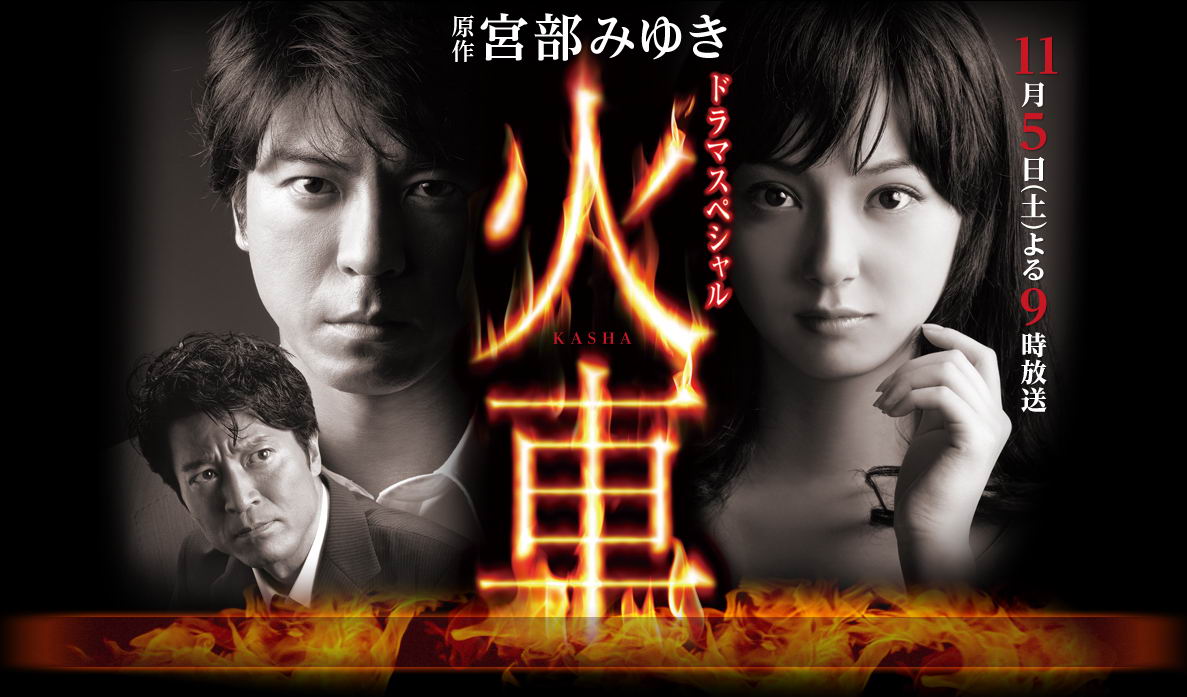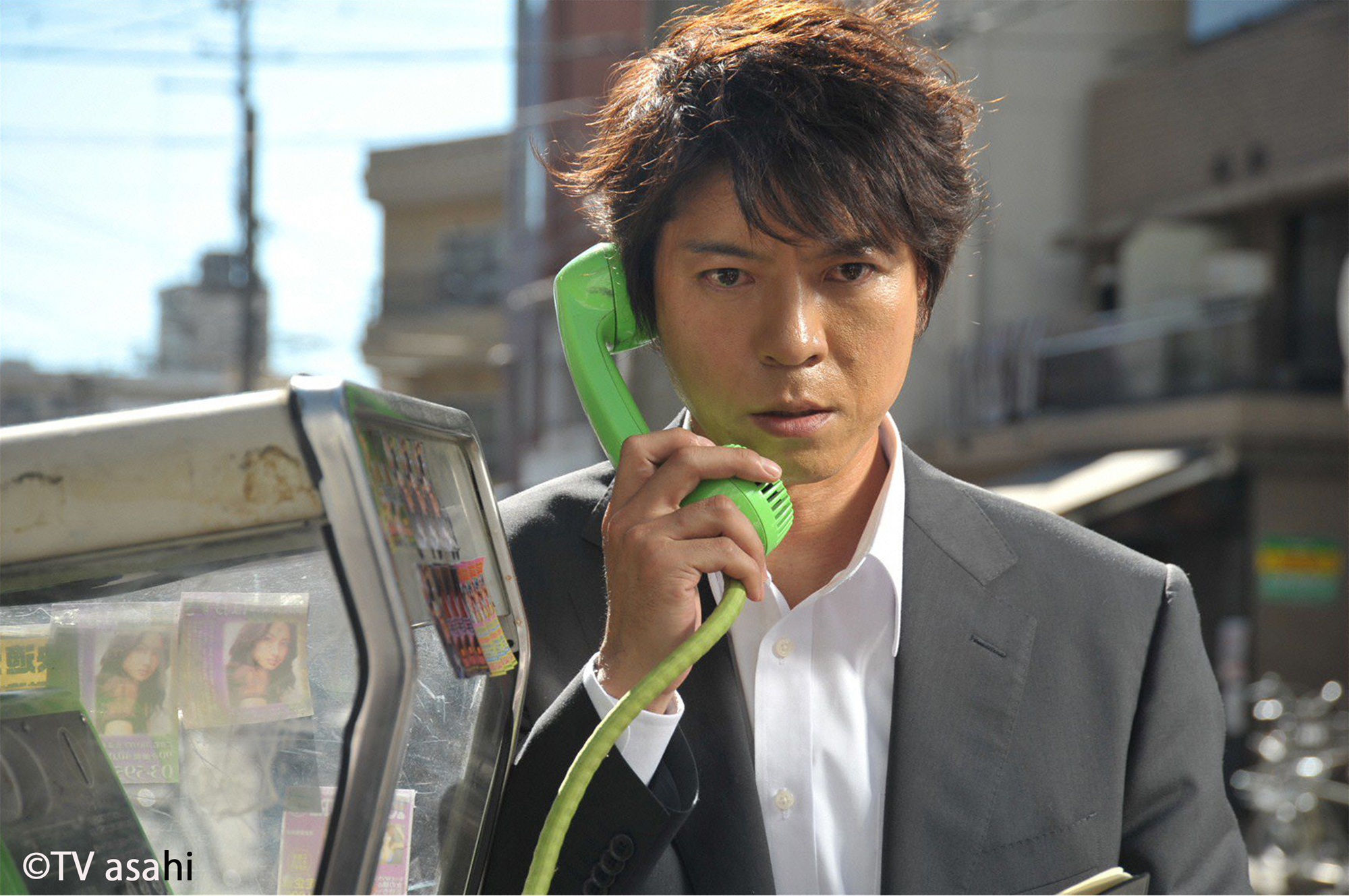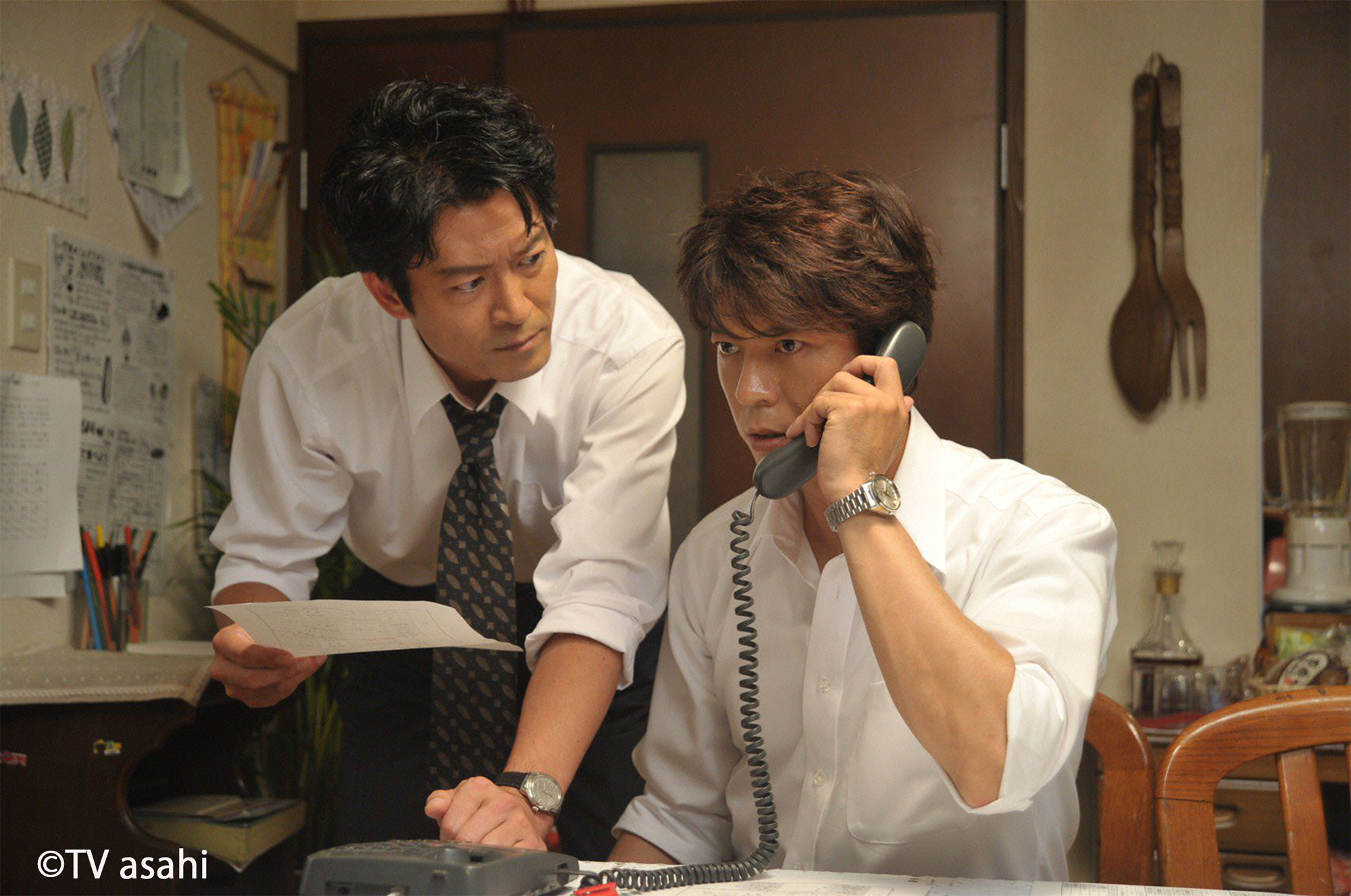Kasha
Review by David Cirone

Kasha, based on the mystery novel by Miyuki Miyabe, is a disappointingly flat adaptation, packed with thematic missteps and lacking both the heart and intrigue of the original story.
Set in the early 90s, Kasha (superbly translated by Alfred Birnbaum in the U.S book version as All She Was Worth) follows injured Tokyo police detective Shunsuke Honma (Takaya Kamikawa) as he reluctantly investigates his nephew twice-removed’s missing fiancee. Honma’s feeling useless at home, benched indefinitely after a robbery shooting, and the chance to get out of the house and do something useful is too tempting to refuse.
Honma soon discovers that the missing woman, Shoko Sekine, has been leading a double life, secretly taking over another woman’s identity and wooing Honma’s nephew into marriage. Shoko’s credit card application reveals a bankruptcy in her past, and she’s fled Tokyo without a trace. Honma puts together the pieces of Sekine’s dark past, leading him toward a fateful confrontation with the woman who may have committed murder to start a new life.

The follow-the-clues procedural is choppy, and Honma’s character is simple, generic, and reactionary. Packing the plot into a 2-hour movie is challenge enough, but there are some fundamentally bad choices in the cutting. Honma’s need to be useful and potent, as both his police colleagues and his son begin to view him as weak and possibly useless, is the driving force behind his off-the-books pursuit. The importance of the family register in Japanese society, the burden of debts and public shame of collectors, the shock of females exerting power over each other and unsuspecting men — these are all essential elements to Miyabe’s story, and they’re missing except for a one-liner token mention here and there. Despite Kamikawa’s best efforts, he’s locked passive mode for so long, there’s no reason to care about him or his investigation.
This TV movie gets one thing right: it keeps the final exchange between Honma and his prey silent and ambiguous. We don’t need to hear the words, but Honma does, and it’s only in the last moments of the story that we finally get to connect with Kasha’s psychological complexity.

